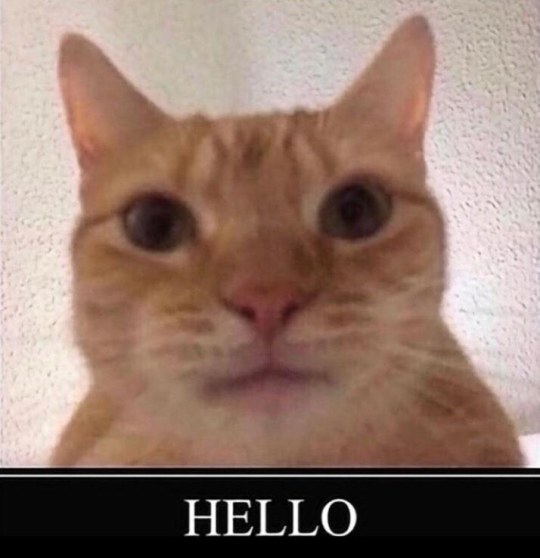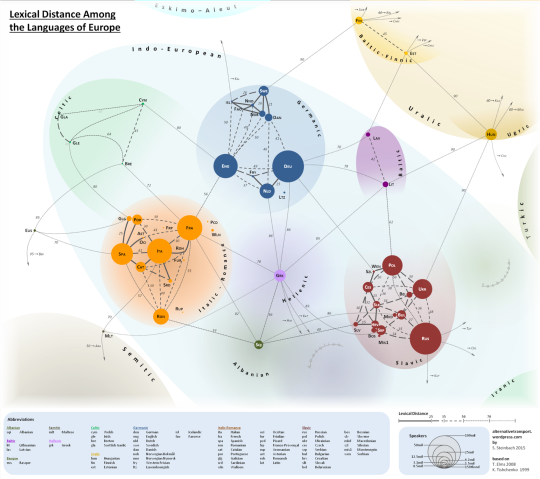Text

-(으)려고 하다! (I plan to)
With -(으)려고 하다 you can tell some one you plan to do something.
Whether or not you use -으려고 하다 or -려고하다 depends on the verb. If it's a consonant like 먹다 (to eat), then you would say:
"저는 먹으려고 해요” - I plan to eat
You drop the ‘다’ because that suffix makes it the dictionary form of the word. You would do this for every verb really. (Take that with a grain of salt I'm still learning too!)
But if it's a vowel like: 배우다 (to learn), then you would say:
"저는 한국어 배우려고 해요” - I plan to learn korean.
The exception is if your verb ends with ‘ㄹ’. So for example: 만들다 - To make
‘만들려고 해요’ - Plan to make
The reason being, and this is my assumption, that if you try adding -으려고 하다 to the end of verbs with ‘ㄹ’ it gets really hard to say. If I'm right someone let me know haha
That's all for nowww!
9 notes
·
View notes
Text
Languages are the best thing that ever happened in the solar system
Saturn? Jupiter? Aurora Borealis? Sex?
Microbes when compared to Lhaovo or Burmese
6 notes
·
View notes
Text
Animal Crossing Vocabulary in German

das Spiel = game
die Spieler = players / gamers
das Abenteuer = adventure
die Abenteuerlust = love of adventure
die Insel = island
die einsame Insel = deserted island
Reif-für-die-Insel-Paket = ready-for-the-island-package
das Inselleben = island life
das Paradies = paradise
der Urlaub = vacation
die Reise = journey, voyage, trip
das Zuhause = home
das Haus = house
das Zelt = tent
der Einzug = moving in
der Alltag = everyday life
die Freunde = friends
die Freundschaft = friendship
der Nachbar = neighbour
der Mitbewohner = room/house-mate
die Besucher = visitors
der Heimwerker = do-it-yourself doer /enthusiast
die Natur = nature
der Strand = beach
der Himmel = sky
das Meer = ocean
der Fluss = river
der See = lake
der Baum = tree
der Geldbaum = money tree
die Palme = palm tree
die Blumen = flowers
die Früchte = fruits
die Fische = (many) fish
die Tiere = animals
die Insekten = insects
der Campingplatz = campsite
der Flughafen = airport
das Wetter = weather
das Zeitreisen = time travel
die Möbel = furniture
die Kreativität = creativity
die Idee = idea
das Projekt = project
die Bastelanleitung = handicraft instruction / DIY
das Umgestalten = redesign, rearrange, transform
das Werkzeug = tools
die Veranstaltung / das Ereignis = event
die Sternis (currency in-game) = bells
die Sterne = stars
die Schulden = debt
die Meileninseln = mystery islands
der Laden / das Geschäft = shop / store
die Schneiderei = tailor shop
der Festplatz = plaza
Service Center = Resident Services
125 notes
·
View notes
Text
Loanwords in Hungarian language
Speaking one of the hardest language in the world has its own benefits. I have this love-hate relationship with it but all-in-all, it’s a beautiful language. As many other languages, Hungarian has changed A LOT since the first hungarian people, the Seven chieftains put down their tents on the fields of the Carpathian Basin.
A little history lesson: Hungary has ‘hun’ in its name, right? It’s because historians say that the Hun Monarchy and the Huns were our ancestors. These are the same people who threatened China in Mulan. Funny, right? They were walking and walking and walking, made friends and enemies, all the fun stuff. But as I mentoined earlier, some of these people decided they should settle down. (Saint) Stephen I founded Hungary in 1001 and since then, a lot of things has happened. Turkish invasion (hello, Suleiman), then a few hundred years later Austrian occupation, then in the 20th century we were in the big communist block and there were a lot of Soviet soldiers, not to mention that we are surrounded by a lot of Slavic countries. Since Hungary is a heavily Christian-based country and there weren’t a Hungarian Bible for centuries, we also have Latin loanwords.
Linguistically (is that a word??) speaking, we are in the Finnish-Ugric language family so we have some (a lot) similar words with Finnish. Also, Hungarian is agglutinative language - this basically means that we sew the rootwords and the suffixes and prefixes and those stuff together - like Turkish, Mongolian, Korean, Japanese, but that’s another story. Back to words!
Keep in mind that all the words listed below has had changed! We only can see the resemblance if we keep a focused attention and some words aren’t even look and sound the same in nowadays’ language. Also, I’m not a language or linguistics expert, I only do it for fun and for the research!
Finnish loanwords:
él - elää (lives)
tél - talvi (winter)
anya - äidin (mother)
szomorú - surullinen (sad)
kéz - kasi (hand)
Turkish loanwords:
alma - elma (apple)
oroszlán - aslan (lion)
bika - boğa (bull)
sárga - sarı (yellow)
iker - ikiz (twin)
German loanwards:
tánc - tanzen (dance)
papír - Papier (paper)
gróf - Graf (earl)
lant - Laute (lyre)
borbély - Barbier (barber)
Latin loanwords:
templom - templum (church)
angyal - angelus (angel)
lecke - lectio (lesson, homework)
iskola - scholae (school)
mise - massa (mass)
Russian loanwords:
sztahanovista - ��тахановское (a person who does much much much more than required at work)
kulák - кулак (kulak, a person who were sent to a lager/gulag)
kolhoz - колхоз (kolkhoz, a collective farm in the former Soviet Union)
Slavic loanwards:
galamb - golobica [Slovenian], gołąb [Polish] (pigeon)
király - král [Czech], kralj [Slovenian], król [Polish] (king)
medve - медвед [Serbian], medved [Slovak] (bear)
patak - potok [Czech, Slovenian] (stream)
uborka - okurka [Czech], uhorka [Slovak] (cucumber)
(tumblr keeps ducking up the post’s structure, I’m sorry if it’s messed up:(()
I hope you liked this post and got to know new and interesting informations about Hungarian language! Stay safe and well!❤
78 notes
·
View notes
Text

jdn in Watte packen – walk on eggshells
erste Sahne sein – to be top-notch
Mauerblümchen – wallflower
jdm die kalte Schulter zeigen – to give sb the cold shoulder
auf Herz und Nieren prüfen – to put sb/ sth to the acid test
eine harte Nuss zu knacken – hard/ tough nut to crack
etw durch die Blume sagen – to beat around the bush
mit der Tür ins Haus fallen – come straight to the point
mit jdm ein Hühnchen mit zu rupfen haben – to have a bone to pick with sb
Vitamin B haben – to have connections
grün hinter den Ohren sein – to be wet behind the ears
Das kannst du dir abschminken – You can forget that
dem Tod von der Schippe springen – to be snatched from the jaws of death
von seinem hohen Ross heruntersteigen – to get off one’s high horse
jdm Honig um den Mund schmieren – to butter sb up, to flatter sb
jdm in den Ohren liegen – to pester sb
in den sauren Apfel beißen – to bite the bullet
über seinen Schatten springen – to force oneself to do sth
lügen wie gedruckt – to lie through one’s teeth
auf dem Holzweg sein – to be on the wrong track
I made a similar post last year: Weird German Idioms
216 notes
·
View notes
Text
In olden days, Nüshu was taught by elderly women to girls at home because female children weren’t allowed to attend formal school. During gatherings in villages, women used the characters to write poems or song lyrics to express their emotions that were hidden from men.
undefined
youtube
54 notes
·
View notes
Video
🇩🇪 der Wald
🇬🇧 forest
der Baum = tree
das Gras = grass
die Blätter (das Blatt) = leaves (leave)
Im Sommer ist es besonders schön im Wald. Die Luft ist kühl und frisch, es ist ruhig, man hört die Vögel zwitschern und die Blätter rascheln.
117 notes
·
View notes
Text

Since Valentine’s day is just around the corner I thought I’d make a cute little masterpost! Fancy a hungarian? With these phases you can easily win their heart ;)
Szeretlek - I love you
Imádlak - I adore you
Hiányzol - I miss you
Szükségem van rád - I need you
Akarlak - I want you
Állandóan rád gondolok - I think about you all the time
barát (m.) / barátnő (f.) - boyfriend/girlfriend (both barát and barátnő can mean just regular friend it depends on the context)
együtt járni valakivel - to date someone (it literally means to walk with someone how cute is that)
csók - kiss
puszi - light kiss; peck (yes it sounds similar to pussy great right?)
ölelés - hug
Jól nézel ki - You look good
Valentin-nap - Valentine’s day
évforduló - anniversary
szerelmem - my love
életem - my life
egyetlenem - my only one
lelkem - soul of mine
szívem - my heart
drágám - my darling
cicám - my kitten ( ͡° ͜ʖ ͡° )
galambom - it means ‘my pigeon’ that may sound weird but that’s how it is. not really used nowadays but it’s common in poems so i thought it would be helpful
if you want to know more don’t hesitate to ask me!!
220 notes
·
View notes
Text
Hungarian Vocabulary - Work

dolgozni - to work
munka - job
állás - job
munkahely - workplace
foglakozás - profession
szakma - profession
szakmai tapasztalat - work experience
önéletrajz - CV
munkára jelentkezni - to apply for a job
állásinterjú - job interview
teljes munkaidős állás - full time job
részmunkaidős állás - part time job
gyakornok - trainee
önkéntes - volunteer
fizetés - salary
alkalmazott - employee
munkáltató - employer
munkanélküli - unemployed
álláskereső - job seeker
iroda - office
ügyfél - client
álláshirdetés - job advertisement
szabadúszó - freelancer
kolléga - colleague
főnök - boss
karrier - career
209 notes
·
View notes
Text
you know what’s really cool about learning a new language is that little by little you start understanding things and it’s not just “ksndlandowodbsla” when you hear someone talking in your target language it’s like “jdksdk-usted-foelfje-puntos-fjsodkspks-esta bien” and soon there won’t be any “jdksodld” it’ll all be smooth.
5K notes
·
View notes
Photo

Winter at Old Kiev, 1976, Tetyana Yablonska
Medium: oil,canvas
26 notes
·
View notes
Text
Love seeing little pawprints. So fucking magical. There was a little guy here.
220K notes
·
View notes
Text
Broken laptop - Spanish wordlist
Ey Leute, what’s up. I broke my mother’s laptop by accident by sitting my ass over it while it was in the couch, I didn’t see it was there, she still doesn’t know and I’m dead sure she’ll kill me as soon as she finds out, so.. WHAT BETTER TIME TO MAKE A SPANISH WORDLIST FOR YOU PEEPEEL OUT THERE CRAVING TO LEARN TACO?!??!?
Nouns
Notebook* (Arg. f.) o Portátil (Esp. m.) - Laptop
Pantalla (f.) - Screen
Vidrio (m.) - Glass
Servicio técnico (m.) - Tech support
Camarita (f.) - Webcam
Asesinato (m.) - Murder
Batería (f.) - Battery
Teclado (m.) - Keyboard
Repuesto (m.) - Spare part
Cable (m.) - Wire / Cable
Cadáver (m.) - Corpse
Sillón (Arg. m.) o Sofá (Esp. m.) - Couch
Cargador (m.) - Power adaptor
Problema (f.) - Problem
Desgracia (f.) - Disgrace
Adjectives
Roto (-a) - Broken
Despedazado (-a) - Shattered
Costoso (-a) o Caro (-a) - Expensive
Problemático (-a) - Problematic
Frágil - Fragile
Plástico (-a) - Made of plastic
Catastrófico (-a) - Catastrophic
Verbs
Romper - To break
Despedazar - To shatter
Caer - To fall
Tirar / Dejar caer - To drop
Aplastar - To crush
Arreglar o Reparar - To fix
Pagar - To pay
Ahorrar - To save
Acuchillar - To stab with a knife
Enterrar - To bury
Sentarse en el sofá - To sit on the ‘’couch’’
Remplazar - To replace
Comprar una nueva - To buy a new one
Expressions
Estar en aprietos (Esp. Literally, ‘’to be in hurries’’) o Estar hasta las manos (Arg. Literally, ‘’to be till the hands’’) o Estar hasta los huevos (Arg. Literally, ‘’to be until the balls’’) - To be in serious troubles
Mirame y no me toques (Arg. Literally, ‘’Look at me and don’t touch me’’, more correctly would be ‘’Look all you want, but don’t touch’’) - Very fragile object. Applied to objects that look really sophisticated, such as phones or laptops, but as sophisticated as they look, they also look fragile as shit.
Te voy a meter un boleo en el orto que te voy a sacar volando (Arg. Literally, ‘’I’m gonna insert you a kick in your ass that I’ll make you fly away’’, more correctly it would be ‘’I’m gonna kick your ass off existance’’) - I’m going to f*ck you up

8 notes
·
View notes
Text
“Être” conjugated in all tenses
Indicative (indicatif)
*Present (présent)
je suis
tu es
il est
nous sommes
vous êtes
ils sont
*Perfect (passé composé)
j'ai été
tu as été
il a été
nous avons été
vous avez été
ils ont été
*Imperfect (imparfait)
j’étais
tu étais
il était
nous étions
vous étiez
ils étaient
*Pluperfect (plus-que-parfait)
j'avais été
tu avais été
il avait été
nous avions été
vous aviez été
ils avaient été
*Simple past (passé simple)
je fus
tu fus
il fut
nous fûmes
vous fûtes
ils furent
*Past perfect (passé antérieur)
j'eus été
tu eus été
il eut été
nous eûmes été
vous eûtes été
ils eurent été
*Future (futur simple)
je serai
tu seras
il sera
nous serons
vous serez
ils seront
*Past future (futur antérieur)
j'aurai été
tu auras été
il aura été
nous aurons été
vous aurez été
ils auront été

Conditional (conditionnel)
*Present
je serais
tu serais
il serait
nous serions
vous seriez
ils seraient
*Past
j'aurais été
tu aurais été
il aurait été
nous aurions été
vous auriez été
ils auraient été
*
Subjunctive (subjonctif)
*Present
que je sois
que tu sois
qu'il soit
que nous soyons
que vous soyez
qu'ils soient
*Past
que j'aie été
que tu aies été
qu'il ait été
que nous ayons été
que vous ayez été
qu'ils aient été
*Imperfect
que je fusse
que tu fusses
qu'il fût
que nous fussions
que vous fussiez
qu'ils fussent
*Pluperfect
que j'eusse été
que tu eusses été
qu'il eût été
que nous eussions été
que vous eussiez été
qu'ils eussent été
*
Imperative (impératif)
*Present
sois
soyons
soyez
*Past
aie été
ayons été
ayez été
*
Infinitive (infinitif)
*Present
être
*Past
avoir été
*
Participle (participe)
*Present
étant
*Past
été
ayant été
*
Gerund (gérondif)
*Present
en étant
*Past
en ayant été
415 notes
·
View notes
Text
A Map of Lexical Distances Between Europe's Languages

Europe’s defining trait is its diversity. Europeans don’t have to travel far to immerse themselves in a different culture. And if each only spoke their own language, they wouldn’t even be able to make heads or tails of it.
Or would they?
Finnish people probably won’t make a lot out of Spanish, and if you’re from Spain, Finnish might as well be Chinese. But not all languages are as far apart as those two. A Frenchman could understand a bit of Spanish, just because it resembles his own language. And an Estonian can pick up a some Finnish, for the same reason.
But the Estonian will have a slightly harder time of it than the Frenchman, and this map shows why.
Keep reading
634 notes
·
View notes

